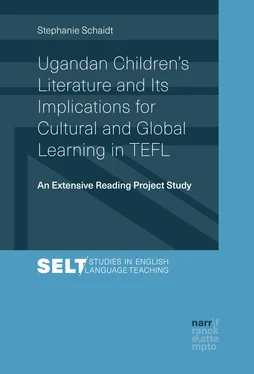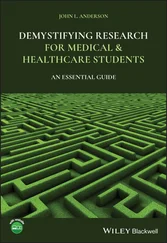Die von Bühler formulierten Leitideen und Richtziele orientieren sich ausschließlich hin auf europäische Schüler. Doch welche Lernziele wären adäquat für den Rest der Welt? Verbirgt sich dahinter nicht doch ein Menschenbild, das den Mächtigen einen Subjektstatus und den Machtlosen einen Objektstatus zuweist? Das Grundinteresse aller Herrschenden nach Macht wird hier gleichzeitig verschleiert und diskursiv reproduziert. [The key ideas and principles divised by Bühler are oriented towards European students. But which learning objectives would be appropriate for the rest of the world? Is there a human image behind it that gives the powerful the status of subject and the powerless the status of object? The basic striving of all rulers for power is blurred and also discursively reproduced.] (Fäcke, 1999, pp. 53–54; my translation)
Scholars also raise the concern that global education does not focus enough on the historical background and lacks references to the legacy of colonialism. Glokal e.V., an association registered in Berlin which focuses on power critical educational work and counselling, analysed over a hundred sources and core documents dating from 2007 to 2012 that were published in the field of development education in Germany and are used by NGOs, teachers or multipliers in the education sector. The aim of this analysis of materials was “to find out how far, and to what effect, development education material broaches or neglects issues of postcolonial power relations” (Glokal e.V., 2013, p. 5). The association summarises the results of the study as follows:
In summary it becomes evident that the analysed material reproduces hegemonic Eurocentric historiography (and, in particular, historical omissions) as well as hegemonic concepts of development, culture and racism. The interconnectedness of colonialism, capitalism and modernity are avoided and wholeheartedly ignored. With the absence of these important issues within the modern discourse on development education, the bifurcation of the world persists: on the one hand people and societies which need to be ‘developed’, and helpers, saviours of the world, and responsible cosmopolitans on the other. A Postcolonial critique is adopted at times, but is often defused to such a degree that it does not destabilise the dominant narrative perspective. In addition, the material does not do justice to an inclusive pedagogy in the migration society. (Glokal e.V., 2013, p. 5)
Much of the criticism addressed at the concept of global learning in Germany also focuses on the Orientation Framework for the Learning Area of Global Development (Appelt et al., 2007; Siege et al., 2015). In an open letter to the architects of the first edition of the orientation framework, a nation-wide affiliation comprising various organisations and networks from the field of power critical education and organisations of Blacks (Berlin Postkolonial, glokal, IMAFREDU, karfi, moveglobal, 2014), raises several points of criticism concerning the framework. It criticises, for example, that it is a product of a white , Western scholarship, not taking perspectives of Black people and people in the Global South sufficiently into account. Furthermore, it points to the normative orientation towards sustainable development, a highly disputed concept, as very problematic.
In addition, global education approaches, as they are suggested by scholars in foreign language didactics, entail questionable aspects. Since Cates’s concept of global education is frequently referred to in the German EFL context, there is need for further reflections upon his approach at this point. Despite the fact that Cates has without doubt made important contributions to the field of global education in foreign language learning, particularly by bringing attention to the concept, his approach is not unproblematic, I argue.
First of all, the theoretical and empirical foundation of his concept may be questioned. To my knowledge, Cates has only published a number of short articles, essays and talks in the field of global education which give only an insight into sections but not an overview of his theoretical foundation of the concept. In addition, he hardly provides any empirical evidence for his assumptions.
Furthermore, some of the goals Cates lists seem to be rather impracticable and impossible to realise. In my opinion, global education should not raise the claim of solving world problems since this is an unrealistic if not presumptuous goal. Cates, however, emphasises exactly this point in several of his articles:
The final goal of global education is action – democratic participation in the local and global community to solve world problems. (Cates, 2002, p. 41)
One out-of-class activity carried out by Bamford was a charity walkathon in Tokyo where students and teachers practice English while walking 35 kilometers to raise money to help end world hunger. (Cates, 2002, p. 47)
In this chapter, we propose an optimistic view of the future of this planet. We propose that as our tiny globe spins round the Sun, we second language teachers can play a role in making this world a better place at the same time that we improve our students' language proficiency. The means by which we and many of our colleagues have been attempting to do our part for the planet lies in the use of global education projects as a component of the second language curriculum. (Cates & Jacobs, 2006, p. 167)
In addition, I would judge some of the following methods and activities that Cates suggests rather critically:
Role plays can stimulate students' creativity while promoting communicative language use in a way that lecturing can't. There's a big difference between reading about Third World refugees, for example, and actually becoming one in class. Global education role plays include conflict resolution skits, discrimination experience games, and Model United Nations simulations, and can have students take on roles ranging from endangered species, to African slaves, to world leaders. (Cates, 2004a, p. 33)
Some schools write English letters to foster children from Third World countries. Yet others hold English charity events to raise money to remove Cambodian landmines, help African AIDS victims, assist Iraqi children, or build schools in Nepal. (Cates, 2004a, p. 34)
The first quote gives an overview of suggestions for role play activities. I consider “acting out a refugee” or an “African slave” not only a very difficult activity for students without experiences of displacement or colonial oppression but also a highly questionable one, as it may easily reinforce existing prejudices and play down the seriousness of the topic. The suggestions in the second quote focus on ways in which students may help or assist underprivileged people in the world. Such activities, particularly when done in a non-reflective manner, may increase feelings of superiority and prejudices. Both quotes show that Cates’s concept of global learning clearly addresses a Western target group and does not include everyone. It seems to look at ‘the other’ as an object of Western knowledge through which people in the Global North may enhance their competencies. It completely neglects that people in the Global South may develop their own possibilities of action. Therefore, I would deny the concept the denomination ‘global’.
In conclusion, from a postcolonial perspective, global education as it is often understood and implemented today tends to reproduce assumptions of cultural supremacy, implicitly or explicitly. Consequently, stereotypes are reinforced instead of being deconstructed. It usually targets ‘the other’ and excludes certain people and groups of people of a migration society. I therefore plead with Fäcke (1999), Andreotti (2006, 2008) and Merryfield (2009) for a more reflexive discussion of notions of culture and global issues. Ideas for such an approach are given in Chapter 8.
Читать дальше












